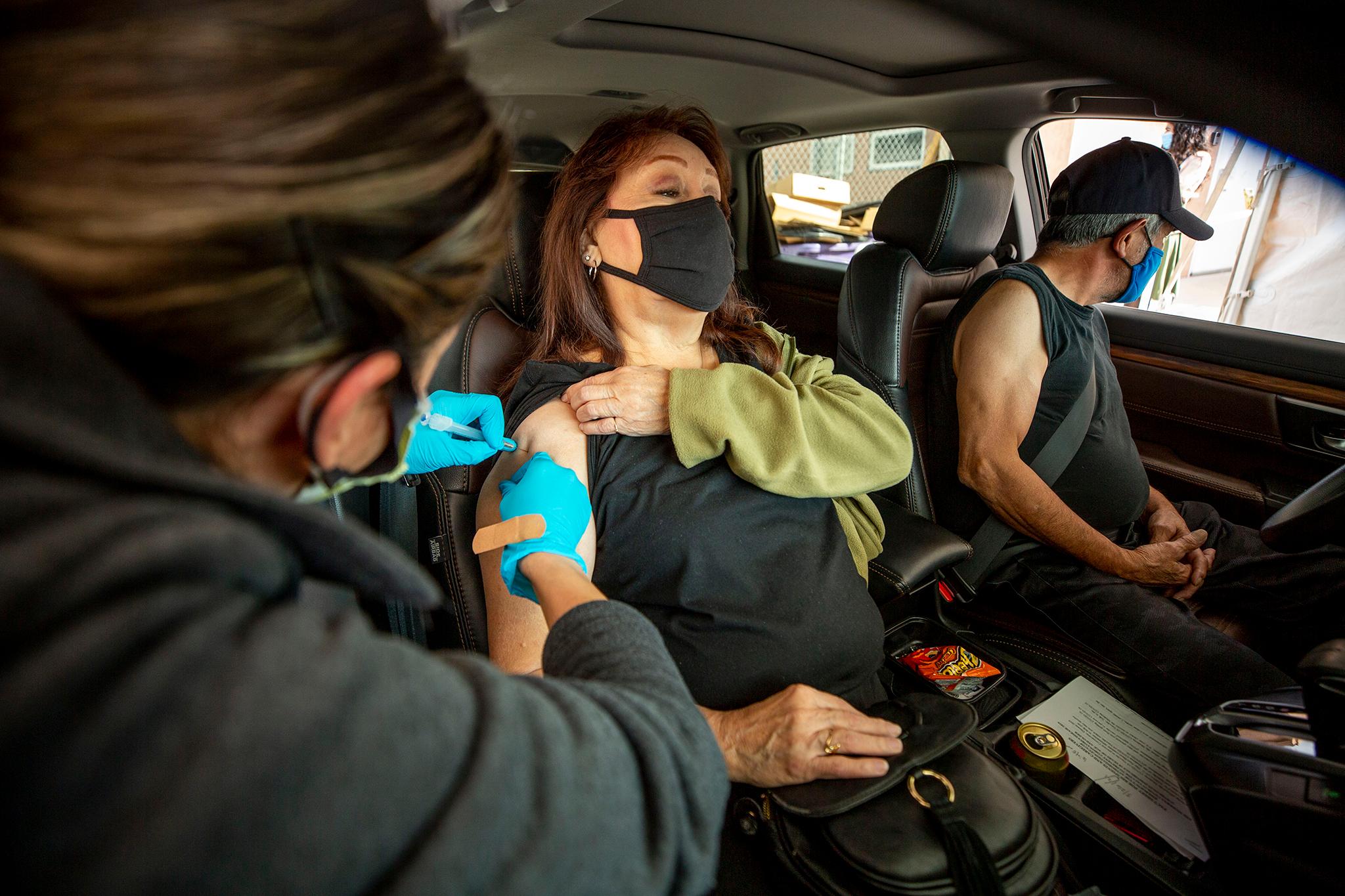Omicron has peaked in Denver.
Tori Burket, epidemiology and disease intervention program manager for the city, said Denver saw its peak of the much-more transmissible variant of COVID-19 around Jan. 10. Burket is responsible for overseeing how the city tracks diseases, including COVID-19.
The omicron variant was first detected in the city last month. At its peak, the one-week cumulative case rate was nearing 2,000 per 100,000 people, she said, but that number is now currently down to roughly 850 per 100,000. That's still high, but it shows cases are declining. The current rate is still higher than the city's previous record-high case rate, recorded during the fall of 2020, when it was 700 per 100,000 people.
"Our overall case rates have been steadily decreasing over the last two weeks," Burket said.
Positivity rates in Denver are down as well. Burket said during its peak earlier this month, the city's positivity rate was almost 30%. The one-week average positivity is now roughly 18%, she said. Hospitalizations due to COVID-19 have dropped roughly 30% in the last week.
Burket said it does look like things are getting better, but she cautions that transmission rates are still high. She's encouraging people to continue taking proactive measures, including getting vaccinated and boosted and wearing face coverings while indoors in public spaces.
"We just want people to continue to remain vigilant," Burket said. "I know, people are very tired. It's been two years of this."
The city has a list online of places to get a vaccine or booster, and and KN95 masks are available for free at city rec centers. Burket said the city will likely announce early next week whether it will extend the indoor mask mandate, which is set to expire on Feb. 3.
Cases appear to be falling statewide, though transmission remains high.
State models project cases will keep dropping over the next couple of weeks. State epidemiologist Dr. Rachel Herlihy said that cases are clearly dropping throughout the state, and positivity rates are falling as well, another indicator that things are overall trending positively.
"While things are moving in the right direction, there is still a lot of COVID-19 that is circulating in our community right now," Herlihy said.
Immunity to omicron is rising, according to a release from the state health department, and modeling estimates 80% of the state population will be immune to the variant by mid-February. Right now, state data suggests one in 19 Coloradans is infectious.
The federal government has started providing free at-home COVID-19 tests. The city is encouraging people to get them by visiting covidtest.gov.













